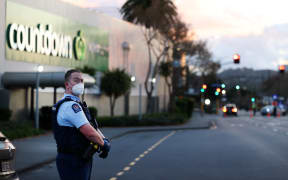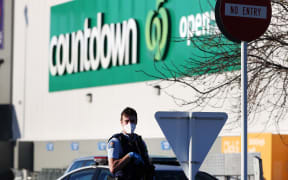Rushed counter-terrorism laws could risk stigmatising refugees, which would only reinforce the false justifications of the New Lynn terrorist, the Green and ACT parties say.
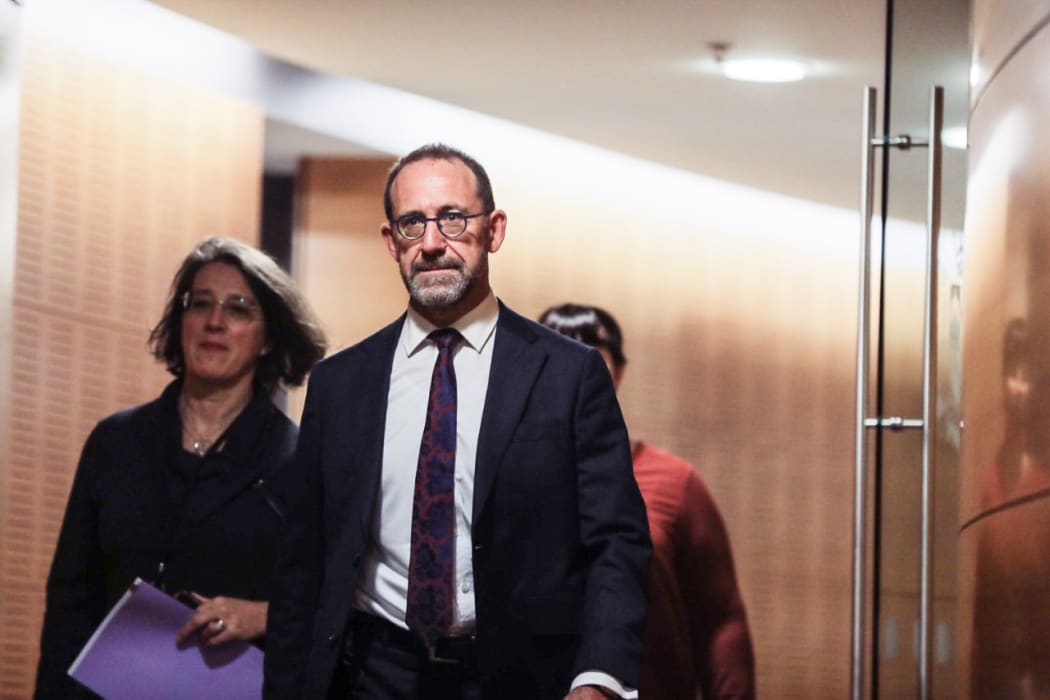
Security agencies minister Andrew Little Photo: RNZ / Samuel Rillstone
The topic has made for unlikely political bedfellows, with the two smaller parties opposing a government move, which National supports.
It follows the terror attack, at a supermarket at LynnMall in the suburb of New Lynn on Friday, which left seven people injured.
Minister Responsible for the GCSB and NZSIS, Andrew Little, in a ministerial statement to Parliament this afternoon, said New Zealand must learn from the attack to keep the community safe.
"To those hurt in the attack and to those who were in the supermarket and those who witnessed it, we are sorry this has happened to you," he said.
"New Zealand was not immune to the threat of terrorist violence in March 2019 and we are not immune now, and we will not be in the future.
"It is time for a more mature national discussion about national security than we have had in the past and now as legislators and as a country we must move forward and do what we can to ensure it never happens again."
He drew attention to the government's upcoming changes to counter-terrorism legislation.
"All agencies were doing all that could be done to protect New Zealanders and ultimately we were frustrated by the law dealing with terrorist activity as it currently stands," Little said.
The government had spent years trying to deport the terrorist, who was shot dead by undercover police surveilling him.
Deputy Prime Minister Grant Robertson last night defended moves on counter-terror laws. He said the government had worked as quickly as it could, but acknowledged it was "important to get this right".
Prime Minister Jacinda Ardern has promised to fast-track the Counter-Terrorism Legislation Bill but told reporters at the daily Covid-19 briefing today the consultation process has not been shortened, rather it was the progression through Parliament which has been shortened.
National has been supportive of the government's moves and leader Judith Collins told the House today it was important for the opposition not to battle the government on every single issue, given the protests National had to deal with in search and surveillance and GCSB law changes.
"We're not going to echo those mistakes, because ultimately governments do need to be able to put in place legislation that is going to be fit for another government and successive governments to deal with," she said.
Green Party co-leader James Shaw expressed sympathy for the victims of the attack in his speech, but warned against advancing the bill under urgency.
"Unless the government knows of another clear and present danger that is likely to crystallise in the coming weeks, the use of urgency to rush through legislation should be opposed on the grounds that it is more important to get right than it is to be seen to be doing something," he said.
"Rushed legislation in response to events runs the risk of increasing harm to innocent people, particularly Māori, migrants, and refugees."

Green Party co-leader James Shaw Photo: RNZ / Dom Thomas
"The goal of terrorism is to scare us into changing who we are, and so as we work together to protect our communities, let us remind ourselves that upholding our values is not a weakness, it is a strength."
He said acting now in a way that stigmatised refugee and migrant communities would serve only to fuel the same false grievances the attacker had used as justification.
ACT leader David Seymour also expressed condolences and concern, and said the party stood with the Sri Lankan and Muslim communities of New Zealand who "some people have sadly chosen to type-cast as somehow bearing group responsibility for hate actions of an individual".
"That is completely wrong," he added.
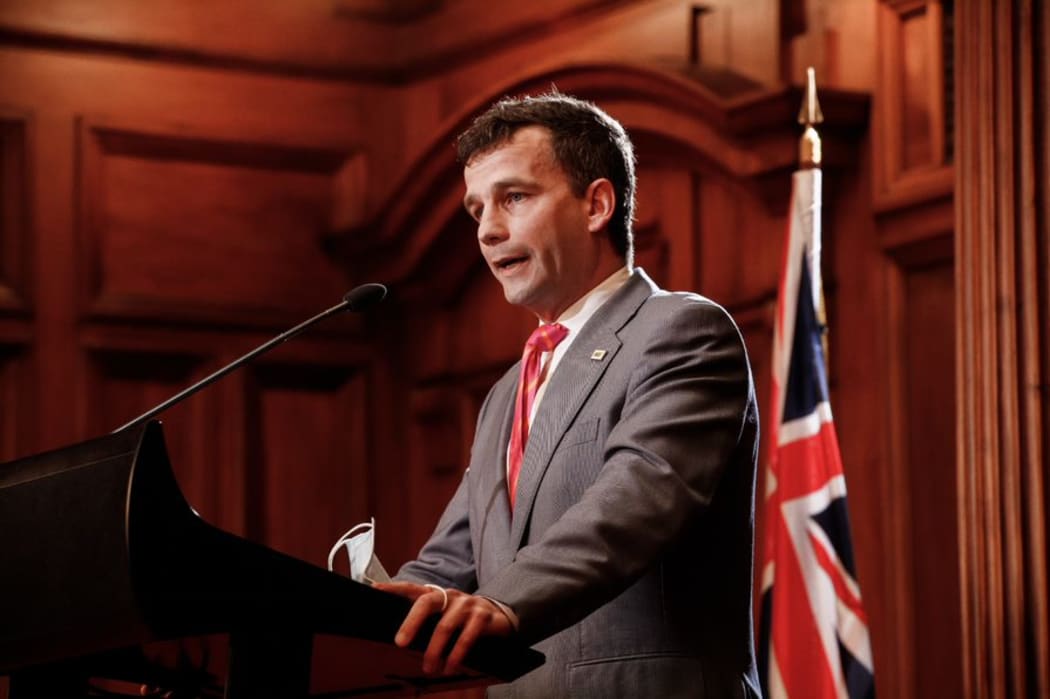
ACT leader David Seymour Photo: Rob Dixon
Seymour called for caution and also opposed rushing the laws through under urgency.
"If anything, the rushing should have been done earlier. It shouldn't be done for the purposes of political theatrics now the person who is the prime threat has been removed."
Little said work on the law began in August 2018, and had undergone a "very deliberative process".
"There is a gap in the law, and we've shown, where there is a gap in the law, that the community continues to be at risk ...
"The executive took some time to put together the package that fills the gaps in the current legislation, they've been considered by a select committee who are due to report back, and so considerable effort has already been put in."
However, Seymour said it was untrue the law had gone through the full select committee process.
"When the prime minister says it's had a full select committee process, then it should have been referred to come back now anyway. The fact it's been asked to come back two months earlier - or, at least, that's what she proposes - shows it has not been a full select committee process."
Terrorist's status was under appeal - Little
Collins and Seymour also asked the government further questions on the government's four-year battle to deport the attacker.
"If a refugee or an immigrant commits an act of terror or goes overseas to take part in extremist activities we should rip up their New Zealand passport. The immigration Act 2009 does provide for this with some restrictions," Collins said.
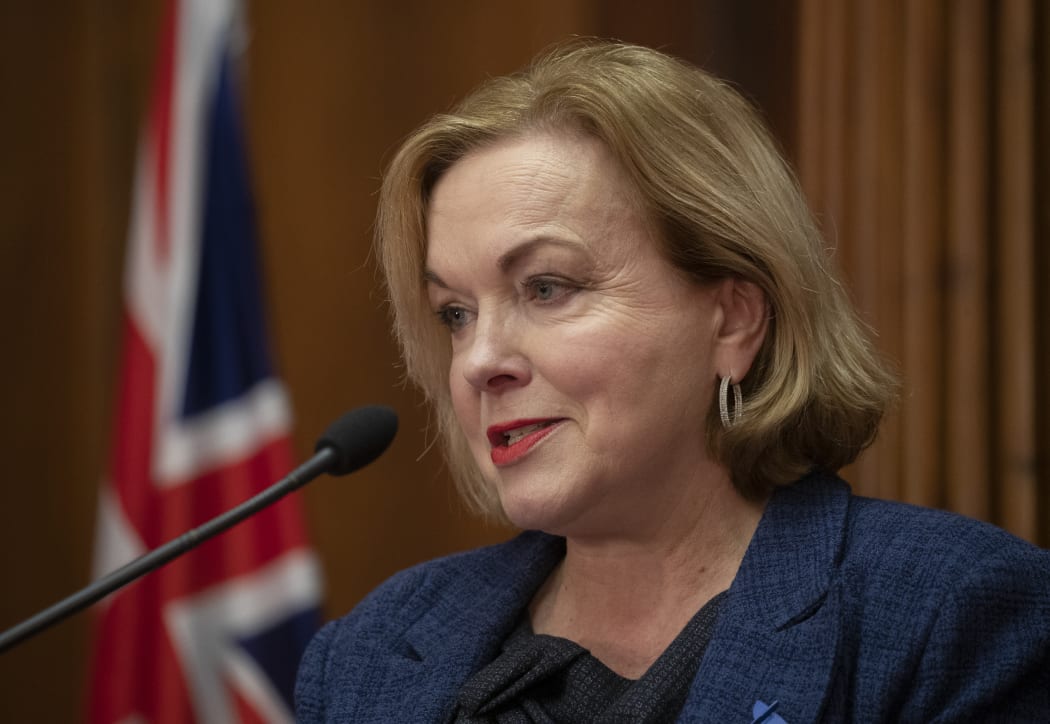
National Party leader Judith Collins Photo: NZME / Mark Mitchell / Pool
She asked whether this option was explored, and what legal advice the government received about revocation of refugee status.
Section 164 of the Immigration Act gives refugees and others at risk of torture or cruel treatment protection from deportation. The only exception is under Article 32.1 or 33 of the Refugee Convention, which allows it "on grounds of national security or public order", or if "there are reasonable grounds for regarding as a danger to the security of the country".
Little said he was not aware of what specific advice was given but said deportation was "actively" considered.
"Advice was received that because of the nature of his refugee status and the place he would be going back to and the danger he would be placed in, that he would more likely than not be considered an internationally protected person and therefore could not be deported," he said.
Seymour challenged this, asking whether any minister had certified the terrorist was a threat or risk to security under s163 (1) under the Immigration Act, which states that people who have been certified as a risk can be deported by order of the Governor-General.
Little stated that the government had sought to deport the attacker, but he was entitled to appeal that decision, and had.
"People independent of the government ultimately make that determination. The government might have received advice, the government might have had a view, but in the end it for those sitting in the appropriate authorities through the appeal process to make the determination, and that determination had not been made.
"All of the agencies involved in managing this particular individual considered every step available to them to make sure the community was safe," he said.


